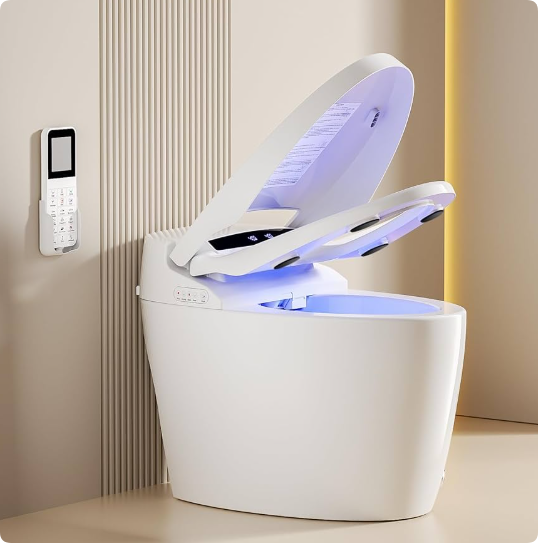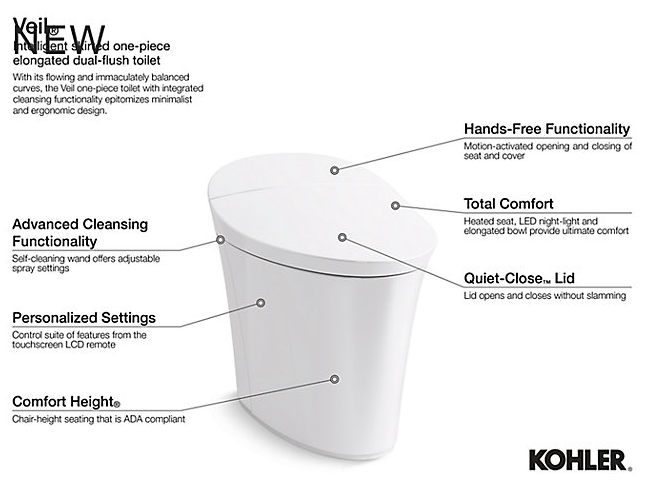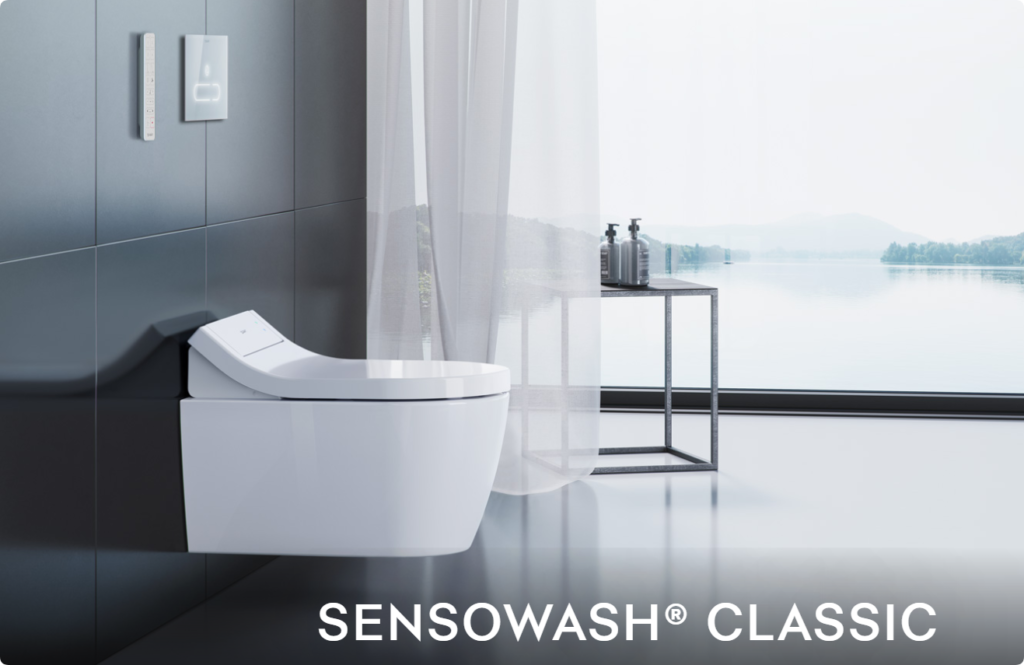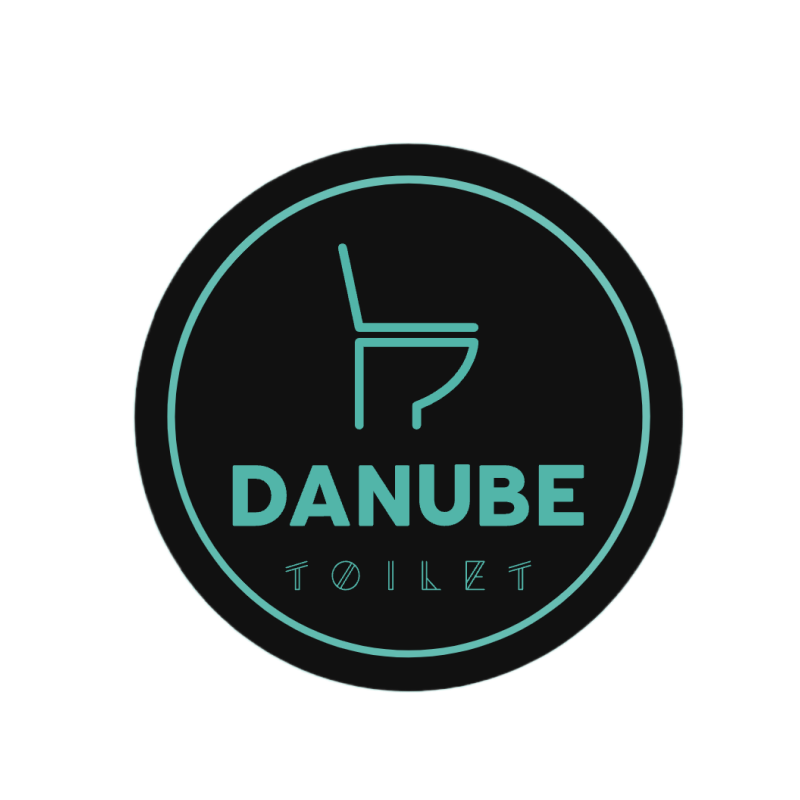In recent years, smart toilets have emerged as a groundbreaking innovation in the world of bathroom hygiene. Not just a simple fixture, these high-tech toilets offer a range of features that enhance comfort, cleanliness, and overall bathroom experience. With the global demand for smarter, more efficient bathroom solutions growing, it’s no surprise that these advanced toilets are taking the spotlight in both residential and commercial spaces, particularly in luxury hotels and high-end residential buildings.
As a leading manufacturer of premium bathroom products, Danube is at the forefront of this revolution, producing top-of-the-line smart toilets, smart mirrors, washbasins, and other sanitary ware solutions. In this article, we’ll explore the features, benefits, and future of smart toilets, as well as the key players in the global market.
What Makes a Toilet “Smart”?
Before diving into how smart toilets are changing bathroom hygiene, let’s define what sets them apart from traditional toilets.
Smart toilets are equipped with advanced technology designed to improve the user’s experience through various automated features. These toilets come with features such as:
- Automatic Lid Opening & Closing: The lid opens automatically when you approach, ensuring a touchless experience.
- Bidet Function: Many smart toilets include a bidet for cleaning purposes, reducing the need for toilet paper.
- Heated Seats: Ideal for cold weather, these toilets come with adjustable heated seats for added comfort.
- Deodorization: Built-in air purifiers eliminate odors and keep the bathroom smelling fresh.
- Self-Cleaning Technology: Some models have self-cleaning features, using UV light or electrolyzed water to sanitize the toilet after each use.
- Water and Energy Efficiency: Modern smart toilets are designed to use less water, making them more environmentally friendly than traditional models.
These features make smart toilets not just a luxury but an upgrade in terms of hygiene, sustainability, and convenience.
How Smart Toilets Revolutionize Bathroom Hygiene

1. Enhanced Cleanliness with Bidet Features
One of the biggest advancements in smart toilets is the introduction of bidet functions, which promote better hygiene compared to traditional toilet paper. Bidets offer a more thorough and gentler cleaning experience, reducing the risk of irritation and infection. With adjustable water pressure and temperature settings, users can customize the cleaning process to their preference, making it a more effective and comfortable solution for personal hygiene.
2. Touchless Technology for a More Hygienic Experience
With built-in sensors, smart toilets allow for a completely touchless experience. From the automatic lid opening to the flushing mechanism, everything operates through motion sensors or remote control, reducing the spread of germs and bacteria. This touchless technology is particularly beneficial in high-traffic areas, such as public restrooms in airports, hotels, and office buildings, where cleanliness and hygiene are paramount.
3. Water Efficiency and Sustainability
Smart toilets are designed with water conservation in mind. With dual-flush systems and smart sensors that adjust the amount of water needed for each flush, these toilets are more efficient than traditional models. This not only saves water but also reduces your utility bills. In a world where sustainability is becoming a priority, smart toilets are leading the charge in eco-friendly bathroom solutions.
4. Advanced Filtration and Deodorization
One of the more sophisticated features of modern smart toilets is built-in air filtration systems that eliminate unpleasant odors. Using activated carbon filters or ionization technology, smart toilets help to keep the bathroom smelling fresh, even after use. This is particularly important in commercial spaces where hygiene and the customer experience are essential.
5. Self-Cleaning Features for Easy Maintenance
Another feature that makes smart toilets stand out is their self-cleaning technology. Many smart toilets come with automatic cleaning systems that sanitize the bowl after each use, ensuring that your toilet stays spotless without you having to lift a finger. This reduces the need for harsh cleaning chemicals and contributes to a cleaner, healthier bathroom environment.
Comparison of Smart Toilets vs. Traditional Toilets
While traditional toilets have served their purpose for many years, they simply can’t compete with the modern advancements of smart toilets. Below, we’ve compiled a side-by-side comparison to highlight the major differences:
| Feature | Smart Toilet | Traditional Toilet |
|---|---|---|
| Bidet Function | Yes, with adjustable water pressure and temperature | No |
| Automatic Lid Opening | Yes, with motion sensors | No |
| Heated Seat | Yes, adjustable for comfort | No |
| Self-Cleaning | Yes, with UV light or electrolyzed water | No |
| Water Efficiency | Dual-flush and smart sensors for optimal water usage | Standard flush, usually less efficient |
| Deodorization | Built-in air purifier or ionization system | No |
| Touchless Operation | Yes, motion sensors for lid opening, flushing, and more | Manual operation |
As seen in the table above, smart toilets offer a range of features that traditional toilets simply cannot match. While they come with a higher price tag, the added benefits in terms of hygiene, comfort, and efficiency make them a worthwhile investment, particularly for businesses looking to provide a luxury experience for their clients.
The Global Smart Toilet Market: Key Players and Trends
As the demand for smart toilets grows, several leading brands are dominating the global market. These brands have set the benchmark for innovation, quality, and luxury in the smart toilet industry. Here are some of the top smart toilet manufacturers:
1. TOTO (Japan)

TOTO is one of the pioneers in the smart toilet industry. Their “Washlet” series revolutionized the market with features like warm air dryers, heated seats, and adjustable water pressure for the bidet function. TOTO’s products are known for their advanced technology, sustainability, and luxury appeal.
2. Kohler (USA)

Kohler is another major player in the smart toilet market. Their “Veil” and “Numi” series are renowned for their sleek design, motion-activated lids, bidet functionality, and advanced deodorization systems. Kohler’s toilets focus on blending cutting-edge technology with a minimalist aesthetic.
3. LIXIL (Japan)
LIXIL’s INAX brand is well-known for its high-quality smart toilets, which include features like self-cleaning nozzles, deodorization, and customizable water temperature. LIXIL has been at the forefront of developing eco-friendly toilet systems, promoting water conservation with every flush.
4. American Standard (USA)
American Standard offers a range of smart toilets with features such as touchless flushing, bidet functions, and energy-saving technology. They are known for making high-tech toilets accessible for the average consumer, offering both luxury and affordability in their products.
5. SensoWash (Germany)

SensoWash offers a range of luxury smart toilets with innovative features such as remote control operation, self-cleaning mechanisms, and energy-efficient systems. Their products are often found in high-end residential and commercial spaces.
Frequently Asked Questions (FAQs)
1. What are the benefits of using a smart toilet?
Smart toilets offer several benefits, including better hygiene with bidet functions, water and energy savings, enhanced comfort with heated seats, and reduced maintenance with self-cleaning features.
2. How much does a smart toilet cost?
The price of a smart toilet can range from $500 to over $5,000, depending on the brand, features, and design. While the initial cost is higher than a traditional toilet, the long-term benefits, such as water savings and reduced cleaning, can offset the expense.
3. Are smart toilets difficult to install?
Smart toilets are generally easy to install and often require the same installation process as traditional toilets. However, some advanced models may require a professional plumber for installation, especially if additional electrical wiring is needed for features like heated seats or motion sensors.
4. Can I install a smart toilet in my home?
Yes, smart toilets are designed for residential use and can be installed in most bathrooms. They are particularly popular in high-end homes, luxury apartments, and guest bathrooms.
5. Are smart toilets eco-friendly?
Yes, many smart toilets are designed to be environmentally friendly. They use less water than traditional toilets, with dual-flush systems that adjust the water volume based on the user’s needs, making them an eco-conscious choice for modern homes and businesses.
Conclusion
Smart toilets are undoubtedly changing the way we think about bathroom hygiene. With their advanced features, such as bidets, heated seats, deodorization, and self-cleaning capabilities, they offer a more hygienic, comfortable, and sustainable solution compared to traditional toilets. Whether you are a hotel owner looking to provide luxury amenities for your guests or a homeowner seeking the latest in bathroom technology, smart toilets are a great investment.
At Danube, we are proud to be at the forefront of this revolution, offering high-quality, innovative bathroom products that cater to the needs of today’s market. Our smart toilets, along with our other premium bathroom solutions, are designed with both luxury and functionality in mind, making them the perfect choice for any modern bathroom project.
Ready to revolutionize your bathroom? Contact Danube today to explore our range of smart toilets and other bathroom solutions!
